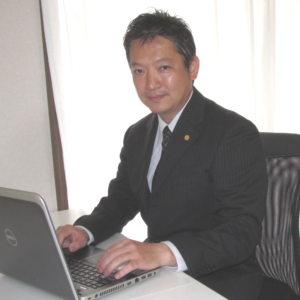Can you change from a ‘Designated Activities’ visa for refugee applications to another visa?

Traditionally, foreigners who applied for refugee status were granted permission to work in Japan six months after their application, allowing them to work in Japan during the refugee application process. However, due to a rapid increase in refugee applications for the purpose of employment using this system, from around 2018, immigration authorities began scrutinizing refugee applications suspected of being for employment purposes more strictly.
Since then, it has become difficult to obtain permission to change from a “Designated Activities" visa for refugee applications to another visa.
↑ Recently, it seems that cases have emerged where foreigners in the process of applying for refugee status can change to a work visa if certain conditions are met. (Added on July 9, 2021)
Here, I would like to explain under what circumstances a change of visa is permitted, what types of visas are allowed, and whether it is possible to apply for a Certificate of Eligibility for a new visa if a change is not possible.
- 1. Application for Change of Residence Status from “Designated Activities" Visa for Refugee Applications
- 1.1. Review of Refugee Application Process and Reasons
- 1.2. Thorough Preparation Necessary for Changing to “Spouse of Japanese National" or “Spouse of Permanent Resident" Status
- 1.3. Possibility of Change to “Permanent Resident" or “Dependent" Visas
- 1.4. If Denied Due to Refugee Application, Returning Home and Applying for a Residence Status Certificate Is the Only Option
- 2. Returning Home to Apply for a Certificate of Eligibility for Residence Status
Application for Change of Residence Status from “Designated Activities" Visa for Refugee Applications
Changes from a “Designated Activities" visa for refugee applications to a work visa are no longer permitted at all. Although permission was granted until around 2017, it is no longer allowed. This applies to all work visas, including “Management" visas.
However, changes to status based visas such as “Spouse of Japanese National" or “Spouse of Permanent Resident" are permitted. There may also be opportunities for “Permanent Resident" or “Dependent" visas depending on the conditions.
Review of Refugee Application Process and Reasons
Obtaining a visa based on status, such as “Spouse of Japanese National" or “Spouse of Permanent Resident," is not easy. These visas are inherently difficult regardless of refugee status, and individuals in the process of applying for refugee status are evaluated not only for the relevance of the status-based visa but also for the refugee application process and reasons.
The process and reasons refer to the circumstances and reasons for applying for refugee status. Individuals who were originally in Japan on other mid-to-long-term visas such as “Student" or “Technical Intern Training" visas and then applied for refugee status after discontinuing school or training will face strict scrutiny.
Similarly, individuals who were unable to change or renew their visas and received a departure preparation visa to remain in Japan may face the same scrutiny if they apply for refugee status to stay in Japan.
Conversely, individuals who experienced some trouble in their home country (even if it does not meet the legal definition of refugee status) and immediately applied for refugee status upon arriving in Japan with a “Short-Term Stay" visa may undergo relatively easier scrutiny.
To simplify, individuals who held some mid-to-long-term visa and applied for refugee status will face stringent scrutiny.
Thorough Preparation Necessary for Changing to “Spouse of Japanese National" or “Spouse of Permanent Resident" Status
As mentioned above, changing to “Spouse of Japanese National" or “Spouse of Permanent Resident" status is not easy. Since these are already difficult visas to obtain, it’s even more so for individuals in the process of applying for refugee status.
Regarding “Spouse of Japanese National," please refer to this article. A similar approach can be applied to “Spouse of Permanent Resident."
Additionally, for “Spouse of Japanese National" or “Spouse of Permanent Resident" and later mentioned “Dependent" visas, the “Questionnaire" is an important document, so please refer to the following article.
Possibility of Change to “Permanent Resident" or “Dependent" Visas
If a person with a “Permanent Resident" visa marries someone holding such a visa, they may be eligible for a “Permanent Resident" visa. Similarly, someone married to an individual with some work visa may be eligible for a “Dependent" visa.
Individuals in the process of applying for refugee status may also have the possibility of changing to “Permanent Resident" or “Dependent" visas. However, their refugee application process and reasons will also be evaluated, so those who applied for refugee status just because other visas were not feasible may not be granted permission.
Especially for “Permanent Resident," which is inherently difficult to obtain, thorough preparation is necessary.
On the other hand, the “Dependent" visa, while not originally a difficult visa to obtain, presents challenges. Unlike Japanese nationals or “Permanent Residents," the primary visa holder (the person holding the work visa) may be interpreted as staying in Japan temporarily for employment purposes. Consequently, it can be difficult to argue for the necessity of cohabitation with the spouse, making it challenging.
While a “Questionnaire" is not a mandatory document for the “Dependent" visa, similar to other cases, an explanation of the process from meeting to marriage, verification of genuine marriage, reasons for staying in Japan, and economic background must be provided in a “Statement of Reason."
If Denied Due to Refugee Application, Returning Home and Applying for a Residence Status Certificate Is the Only Option
Generally, aside from the fact of having applied for refugee status, approval is possible for “Spouse of Japanese National," “Spouse of Permanent Resident," “Permanent Resident," and “Dependent" visas, as long as there are no particular negative factors.
However, there are instances where being a refugee applicant alone can lead to denial, and there may be other reasons for denial. In such cases, it’s advisable to return home and apply for a Certificate of Eligibility for residence status without reapplying for refugee status.
Also, as mentioned earlier, if visa change or renewal was not possible, or if someone with a “Student" or “Technical Intern Training" visa discontinued their school or training and applied for refugee status, visa change is impossible, necessitating a return home to apply for a Certificate of Eligibility for residence status.
Returning Home to Apply for a Certificate of Eligibility for Residence Status
If someone who applied for refugee status desires a work visa or was denied a change to a status-based visa, or if the process or reasons for applying for refugee status were incorrect, returning home and applying for a Certificate of Eligibility for residence status is the only way to obtain a visa.
Regarding the duration after returning home when one can apply (you can apply at any time, it’s about the likelihood of approval), for those with no issues other than having applied for refugee status who want to apply for a work visa, and for those who were denied a change to a status-based visa solely due to having applied for refugee status, they can apply immediately upon return or even shortly before returning home.
Conversely, for those with no legitimacy in their refugee application process or reasons, it would be challenging to obtain approval unless at least a year has passed since returning home.
There are no specific rules regarding the duration between applying for refugee status and re-entry. It largely depends on the discretion of the immigration officer and local immigration rules.











